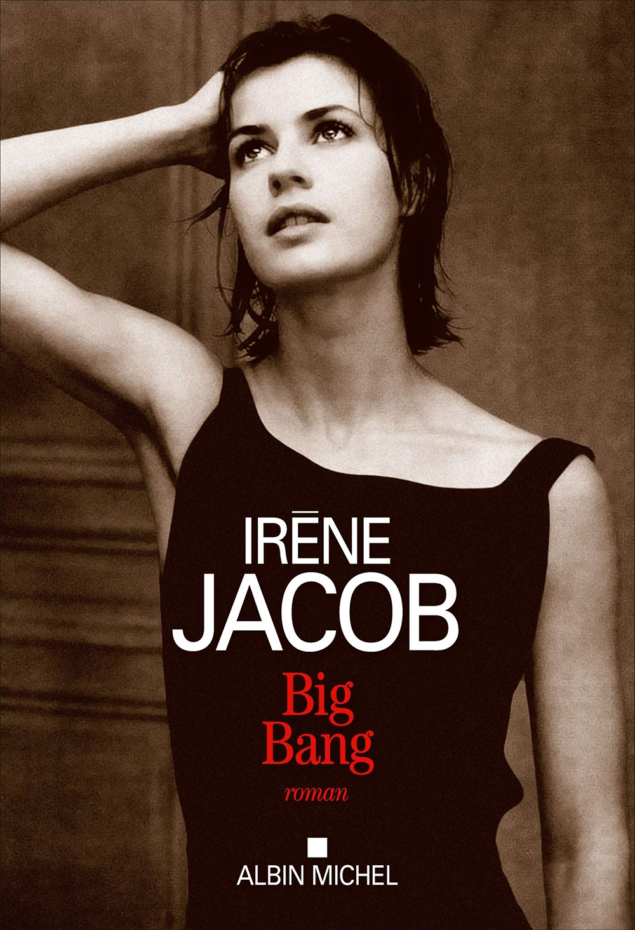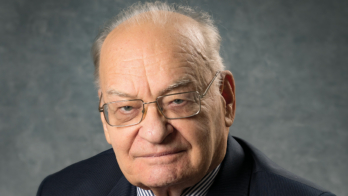Big Bang, by Irène Jacob, published in French by Éditions Albin Michel

French actor Irène Jacob rose to international acclaim for her role in the 1991 film The Double Life of Véronique. She is the daughter of Maurice Jacob (1933 – 2007), a French theoretical physicist and Head of CERN’s Theory Division from 1982 to 1988. Her new novel, Big Bang, is a fictionalised account of the daughter of a renowned physicist coming to terms with the death of her father and the arrival of her second child. Keen to demonstrate the artistic beauty of science, she is also a Patron of the Physics of the Universe Endowment Fund established in Paris by George Smoot.
When Irène Jacob recites from her book, it is more than a reading, it’s a performance. That much is not surprising: she is after all the much-feted actor in the subtly reflective 1990s films of Krzysztof Kieślowski. What did come as a surprise to this reader is just how beautifully she writes. With an easy grace and fluidity, she weaves together threads of her life, of life in general, and of the vast mysteries of the universe.
The backdrop to the opening scenes is the corridors of the theory division in the 70s and 80s
Billed as a novel, Big Bang comes across more as a memoir, and that’s no accident. The author’s aim was to use her entourage, somewhat disguised, to tell a universal story of the human condition. Names are changed, Irène’s father, the physicist Maurice Jacob, becomes René, for example, his second name. The true chronology of events is not strictly observed, and maybe there’s some invention, but behind the storytelling there is nevertheless a touching portrait of a very real family. The backdrop to the opening scenes is CERN, more specifically the corridors of the theory division in the 70s and 80s, a regular stomping ground for the young Irène. The reader discovers the wonders of physics through the wide-open eyes of a seven-year-old child. Later on, that child-become-adult reflects on other wonders – those related to the circle of life. The book ties all this together, seen from the point in spacetime at which Irène has to reconcile her father’s passing with her own impending motherhood.

For those who remember the CERN of the 80s, the story begins with an opportunity to rediscover old friends and places. For those not familiar with particle physics, it offers a glimpse into the field, to those who devote their lives to it, and to those who share their lives with them. The initial chapters open the door to Irène Jacob’s world, just a crack.
The atmosphere soon changes, though, as she flings the door wide open. More than once I found myself wondering whether I had the right to be there: inside Irène Jacob’s life, dreams and nightmares. It is a remarkably intimate account, looking deep in to what it is to be human. Highs and lows, loves and laughs, kindnesses and hurts, even tragedies: all play a part. Irène Jacob’s fictionalised family suffers much, yet although Irène holds nothing back, Big Bang is essentially an optimistic, life affirming tale.
Science makes repeated cameo appearances. There’s a passage in which René is driving home from hospital after welcoming his first child into the world. Distracted by emotion, he’s struck by a great insight and has to pull over and tell someone. How often does that happen in the creative process? Kary Mullis tells a similar story in his memoirs. In his case, the idea for Polymerase Chain Reaction came to him at the end of hot May day on Highway 128 with his girlfriend asleep next to him in the passenger seat of his little silver Honda. Mullis got the Nobel Prize. Both had a profound impact on their fields.
Bohr can be paraphrased as saying: the opposite of a profound truth is another profound truth
Alice in Wonderland is a charmingly recurrent theme, particularly the Cheshire cat. Very often, a passage ends with nothing left but an enigmatic smile, a metaphor for life in the quantum world, where believing in six impossible things before breakfast is almost a prerequisite.
Big Bang is not a page turner. Instead, each chapter is a beautifully formed vignette of family life. Take, for example, the passage that begins with a quote from Niels Bohr taken René’s manuscript, Des Quarks et des Hommes (published as Au Coeur de la Matière). Bohr can be paraphrased as saying: the opposite of a profound truth is another profound truth. As the passage moves on, it plays with this theme, ending with the conclusion: if my story does not stand up, it’s because reality is very small. And if my story is very small, it is because reality does not stand up.
Whatever the author’s wish, Big Bang comes across as an admirably honest family portrait, at times uncomfortably so. It’s a portrait that goes much deeper than the silver screen or the hallowed halls of academia. The cast of Big Bang is a very human family, and one that this reader came to like very much.





